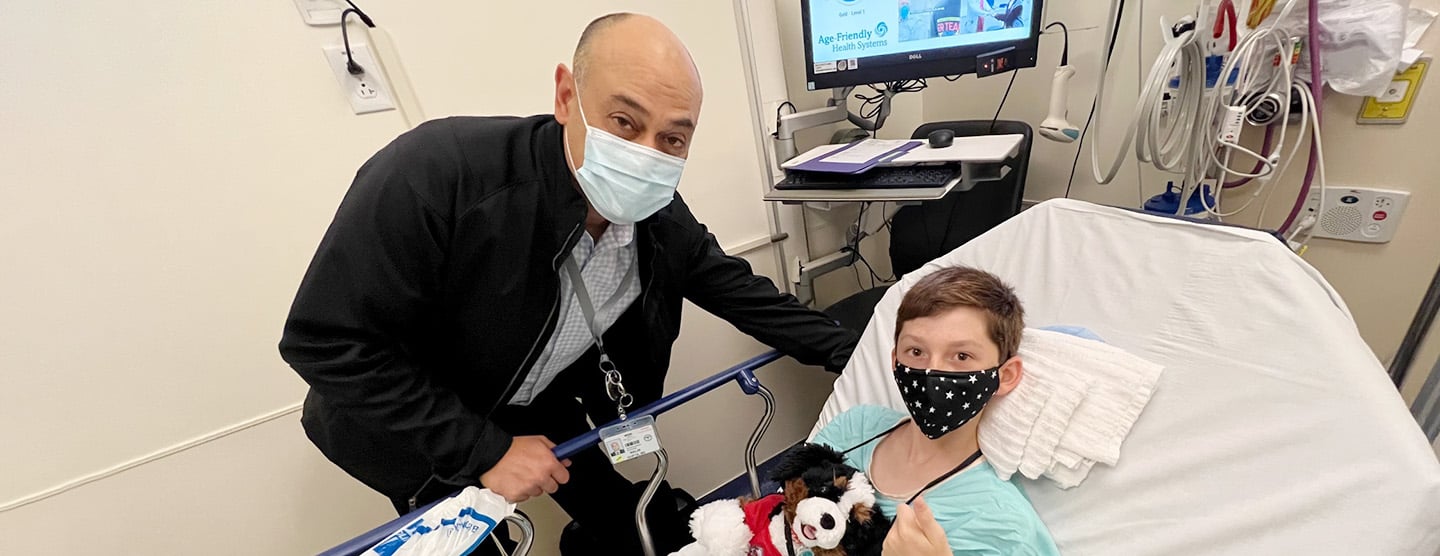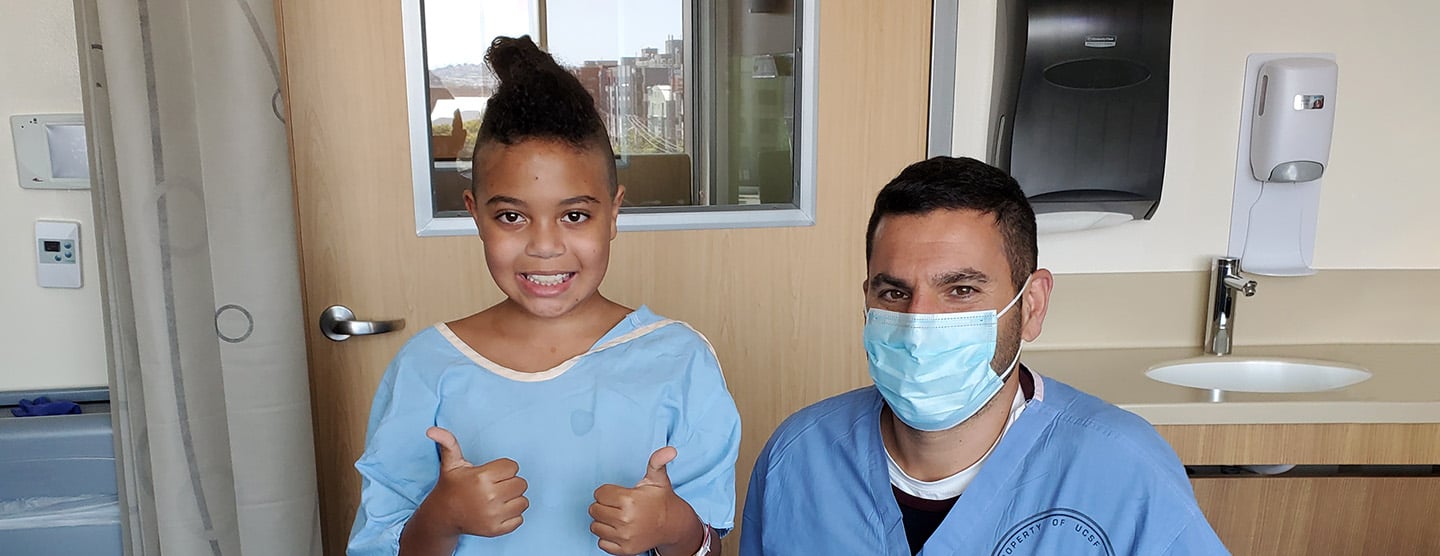
Cerebrovascular & Stroke Program
Neurovascular disease is so rare in children that most pediatric neurologists aren't trained to diagnose or treat it. Nevertheless, each year about 4,000 children in the U.S. experience strokes or other complex disorders affecting blood supply to the brain and spinal cord.
The Pediatric Cerebrovascular and Stroke Program is one of the few centers in the country to offer highly specialized comprehensive care to children with even the most challenging neurovascular conditions. We are experienced in treating ischemic and hemorrhagic strokes, moyamoya, arteriovenous malformations in the brain, brain aneurysms, cavernous malformations, hereditary hemorrhagic telangiectasia (HTT), and other disorders involving nerves and blood vessels.
Also one of the few centers with neurologists who are board certified in both pediatric and vascular neurology, we are experts in providing care in the critical hours after a stroke occurs. We partner with our colleagues in pediatric neurosurgery, hematology, and diagnostic and neurointerventional radiology to provide advanced diagnostic imaging and treatments not available at most children's hospitals, such as highly targeted radiation techniques using the Gamma Knife or CyberKnife. This combination of expertise and technology has allowed us to help patients who are considered inoperable by other institutions.
What's more, our physician-scientists lead national studies to improve the prevention and treatment of pediatric stroke, giving our patients opportunities to join clinical trials, some of which are only available at UCSF.
The patient and research advocacy group Alliance to Cure Cavernous Malformation has designated our program a center of excellence in recognition of the high-quality care our diverse team of specialists provides for cavernous malformations.
Our locations (1)
Fast, convenient care

Immediate access
Our team of specialists is available to evaluate patients showing possible stroke symptoms five to 10 minutes after they arrive.
Collaborative care
We're experienced in partnering with primary care doctors both near and far to ensure each patient's healing journey is uninterrupted.
Transfer support
To coordinate swift, seamless transfers to UCSF, our Pediatric Access Center is available 24 hours a day, 7 days a week.
Remote follow-up
Patients who live outside the San Francisco Bay Area can receive postsurgical care at home through our comprehensive telehealth system.

Our team
-

Christine Fox
MD, MAS
Pediatric vascular neurologist -

Matthew Amans
MD
Neurointerventional radiologist -

Kurtis Auguste
MD
Pediatric neurosurgeon -

Heather Fullerton
MD, MAS
Pediatric vascular neurologist -

Nalin Gupta
MD, PhD
Pediatric neurosurgeon -

Steven W. Hetts
MD
Neurointerventional radiologist -

Winson S. Ho
MD
Pediatric neurosurgeon -

Mitul R. Kapadia
MD
Pediatric physical medicine and rehabilitation specialist -

Kazim Narsinh
MD
Neurointerventional radiologist -

Kristin A. Shimano
MD
Pediatric hematologist-oncologist -

Shannon Lundy
PhD
Pediatric neuropsychologist -

Rachel Vassar
MD
Pediatric vascular neurologist -

Amanda E. Wagstaff
PhD
Pediatric psychologist -

Randall Bain
PA, MPH
Physician assistant -

Caroline Farless
PNP, RN
Pediatric nurse practitioner -

Joyce Harvey
PNP, MSN
Pediatric nurse practitioner
Awards & recognition
-

Ranked among the nation's best in 11 specialties
-

One of the nation's best for neurology & neurosurgery
-

Founded in 2003
-

24/7 access to pediatric stroke specialists
-

Designated a center of excellence by the Alliance to Cure Cavernous Malformation
Partner clinic
Plan your visit
What to Bring
- Photo I.D.
- Health insurance card
- Insurance authorization, if required
- Doctor's referral, if required
- Recent test results related to your child's condition
- List of medications, including dosages, plus any your child is allergic to
- List of questions you may have
- Device or paper for taking notes
Patient stories
Surgery provides a "durable cure" for child's brain bleed
Bobby Stallworth couldn't talk or move his right arm and leg after an arteriovenous malformation (an abnormal tangle of blood vessels) ruptured in his brain. His family turned to UCSF for state-of-the-art surgical care.
Florida boy travels 3,000 miles for lifesaving AVM surgery
When malformed blood vessels ruptured in a delicate part of Gio Perry's brainstem, local doctors wouldn't operate. Our neurosurgeons did.
Support services
Our research initiatives
Learning never stops
Our classroom and bedside classes help kids get credit and keep learning during treatment.
See our school program




















































